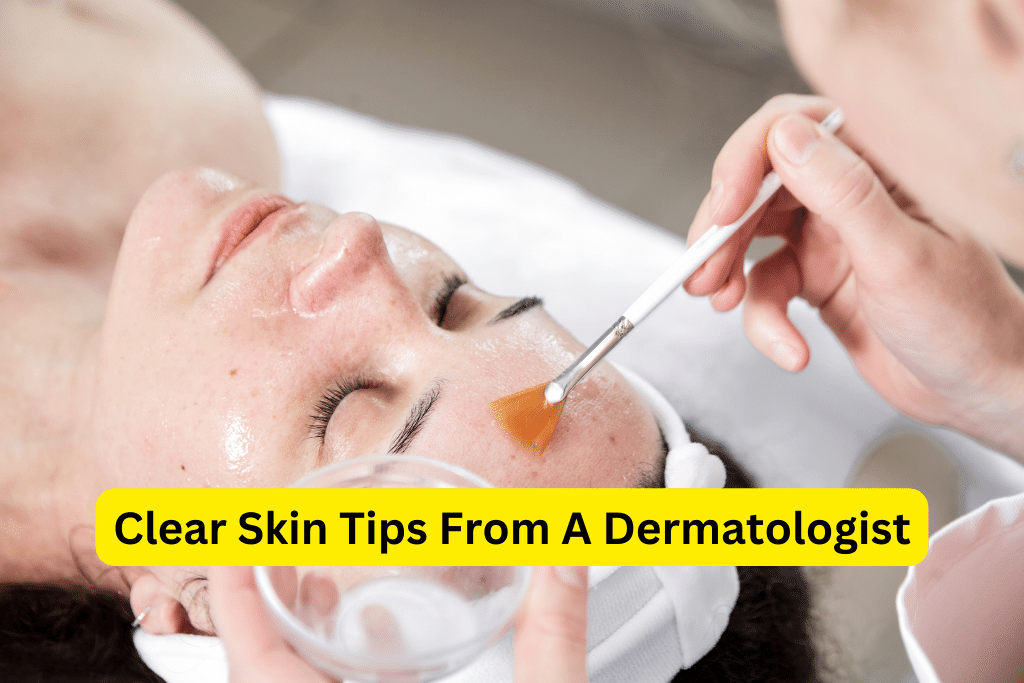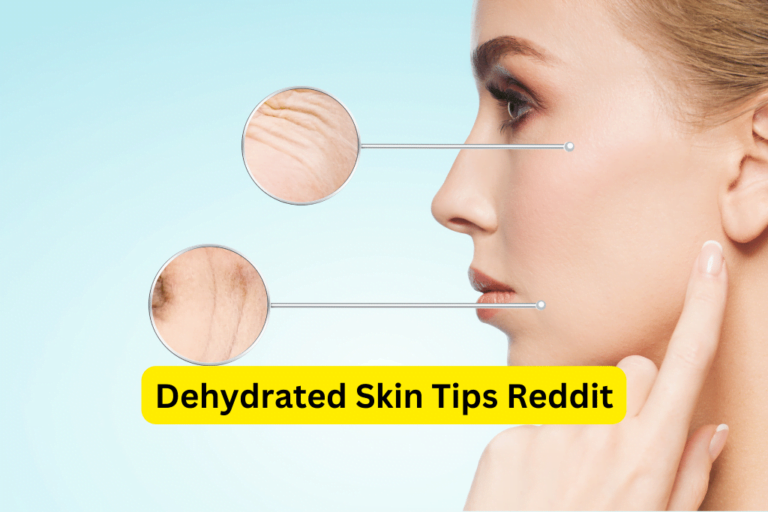Dermatologist’s Expert Tips for Clear, Flawless Skin
Clear Skin Tips From A Dermatologist
Having clear and healthy skin is a goal that many people strive for. Not only does it make you feel confident and beautiful, but it also reflects good overall health. While there are various skincare products and treatments available on the market, it is important to understand that achieving clear skin goes beyond just using the right products. This is where the expertise of a dermatologist comes into play.
As a qualified skincare professional, a dermatologist can provide valuable guidance and personalized advice to help you achieve the clear and flawless complexion you desire. In this article, we will explore a comprehensive guide to clear and healthy skin, featuring tips and recommendations from a dermatologist. Whether you have acne-prone skin, want to combat aging signs, or simply want to improve your skin’s overall appearance, this guide has got you covered.
1. Understanding Your Skin
1.1 Different skin types and their characteristics
One of the first steps to achieving clear skin is understanding your skin type. Skin types can vary greatly, ranging from oily to dry, combination, or sensitive. Each skin type has its unique characteristics and requires a tailored approach to skincare.
1.2 Identifying your skin type
To identify your skin type, pay attention to how your skin feels and behaves throughout the day. Does it get oily quickly? Does it often feel tight and dry? Understanding your skin’s specific needs will allow you to choose the right products and treatments.
1.3 Common skin concerns and conditions
In addition to different skin types, there are also various common skin concerns and conditions that people may experience. These can include acne, rosacea, hyperpigmentation, or signs of aging. Understanding these concerns will help you address them effectively and seek appropriate treatments from a dermatologist.
2. Essential Skincare Routine
2.1 Cleansing and exfoliating tips for clear skin
A proper cleansing and exfoliating routine is crucial for maintaining clear and healthy skin. Choosing the right cleanser for your skin type is essential to avoid stripping the skin or causing irritation. Dermatologists recommend gentle cleansers that effectively remove dirt, oil, and makeup without harsh chemicals.
Exfoliation is another important step in the skincare routine. It helps remove dead skin cells and unclog pores, promoting a smoother complexion. Dermatologists suggest using exfoliators containing gentle ingredients such as alpha hydroxy acids (AHAs) or beta hydroxy acids (BHAs) based on your skin type and concerns. However, it’s important not to over-exfoliate, as this can lead to irritation and inflammation.
2.2 Moisturizing for optimal skin hydration
Moisturizing is crucial to keep the skin hydrated and balanced. It helps maintain the skin’s protective barrier and prevents moisture loss. Just like cleansers, it is vital to choose the right moisturizer for your skin type. Those with oily or acne-prone skin should opt for lightweight, oil-free, or gel-based moisturizers, while individuals with dry skin may benefit from richer, hydrating formulas. Applying moisturizer to damp skin after cleansing helps lock in moisture.
2.3 Sun protection for healthy skin
Protecting your skin from harmful UV rays is vital for maintaining clear and healthy skin. Prolonged sun exposure can lead to premature aging, sunburn, and an increased risk of skin cancer. Experts recommend using a broad-spectrum sunscreen with an SPF of 30 or higher, applying it generously to all exposed areas of the body. Reapplication every two hours or more frequently if sweating or swimming is essential. Additionally, seeking shade, wearing protective clothing, and using sunglasses can provide extra sun protection.
3. Avoiding Common Skincare Mistakes
3.1 Over-cleansing and over-exfoliating
Over-cleansing and over-exfoliating can strip the skin of its natural oils, disrupt its pH balance, and cause irritation. Stick to a gentle cleansing routine and exfoliate no more than two to three times a week to avoid overdoing it.
3.2 Using harsh or incorrect skincare products
Using harsh or incorrect skincare products can lead to skin irritation, dryness, or breakouts. It is important to choose products specifically formulated for your skin type and concerns. Consult with a dermatologist to determine the most suitable products for your skin.
3.3 Neglecting to remove makeup properly
Properly removing makeup is crucial as it allows your skin to breathe and replenish overnight. Leaving makeup on can clog pores and contribute to acne breakouts. Use a gentle makeup remover or cleansing oil to thoroughly remove all traces of makeup before cleansing your face.
3.4 Touching or picking at the skin
One of the worst habits for your skin is touching or picking at it. This can introduce bacteria, lead to inflammation, and result in scarring. Keep your hands off your face as much as possible and resist the urge to squeeze or pick at pimples.
3.5 Sleeping with makeup on
Sleeping with makeup on can clog pores and prevent your skin from renewing and repairing itself overnight. Make it a habit to cleanse your face and remove all makeup before bedtime to allow your skin to breathe and rejuvenate.
4. Incorporating Effective Treatments
4.1 Importance of professional dermatological treatments
While a consistent skincare routine is vital, some skin concerns may require professional dermatological treatments for optimal results. Dermatologists can offer a wide range of treatments tailored to specific concerns, such as acne, signs of aging, or hyperpigmentation.
4.2 Common skin treatments for various concerns
Acne treatments may include topical medications, oral medications, or procedures such as chemical peels or laser therapy, depending on the severity and type of acne. Anti-aging treatments may involve retinoids, chemical peels, or laser therapy to improve skin texture, reduce fine lines, and boost collagen production. Hyperpigmentation treatments can include the use of hydroquinone, azelaic acid, or microneedling to lighten dark spots and even out skin tone.
5. The Role of Diet in Clear Skin
5.1 The connection between diet and skin health
While it may not be the sole factor, diet plays a role in overall skin health. Consuming a balanced diet rich in nutrients can promote clear and radiant skin.
5.2 Foods to include for clear and radiant skin
Include plenty of fruits and vegetables in your diet as they are high in antioxidants, vitamins, and minerals that nourish the skin. Opt for foods rich in omega-3 fatty acids, such as salmon or walnuts, which help maintain skin elasticity. Drinking sufficient water also aids in keeping the skin hydrated and flushes out toxins.
5.3 Foods to avoid or limit for better skin health
Limiting consumption of processed foods, sugary treats, and unhealthy fats may help improve skin health. These foods can contribute to inflammation and may exacerbate certain skin conditions, such as acne or rosacea. It’s also important to note that each individual’s response to certain foods may vary, so paying attention to any personal triggers is essential.
6. Lifestyle Changes for Clear Skin
6.1 Importance of healthy habits in maintaining clear skin
Achieving clear skin goes hand in hand with adopting healthy lifestyle habits. These habits not only benefit your skin but also contribute to your overall well-being.
6.2 Managing stress for improved skin health
Chronic stress can contribute to skin issues such as acne breakouts or exacerbate existing conditions. Finding healthy ways to manage stress, such as practicing yoga, meditation, or engaging in hobbies, can help maintain clear and healthy skin.
6.3 Getting adequate sleep for skin rejuvenation
Sleep plays a crucial role in skin rejuvenation. Lack of sleep can lead to increased cortisol levels, which can trigger inflammation and worsen skin conditions. Strive for a night of quality sleep by establishing a regular sleep routine and creating a calm sleeping environment.
6.4 Hydration and its impact on skin
Proper hydration is essential for clear and healthy skin. Drinking an adequate amount of water helps flush out toxins, maintain skin elasticity, and promote a youthful complexion. Aim to drink at least eight glasses of water a day.
6.5 Incorporating exercise for a healthy complexion
Regular exercise not only benefits your overall health but also enhances skin health. Engaging in exercise increases blood flow, oxygenates the skin, and helps remove toxins. Remember to cleanse thoroughly after sweating to remove any buildup that can clog pores.
7. Seeking Professional Dermatological Advice
7.1 When to consult a dermatologist
If you are struggling with persistent skin concerns, it may be time to seek the expertise of a dermatologist. They can assess your skin, provide an accurate diagnosis, and recommend appropriate treatments or skincare routines tailored to your specific needs.
7.2 Questions to ask a dermatologist during a consultation
When consulting with a dermatologist, don’t hesitate to ask questions. Some essential questions to consider include: What is the underlying cause of my skin concern? What treatment options are available for my skin type and concern? How long should I expect to see results? These questions will help you gain a better understanding of your condition and the recommended treatments.
7.3 Importance of regular skin check-ups
Regular skin check-ups with a dermatologist are essential for early detection and prevention of various skin conditions, including skin cancer. These check-ups allow your dermatologist to monitor any changes in your skin and provide timely interventions if necessary.
Conclusion
In conclusion, achieving clear and healthy skin requires a combination of proper skincare routines, effective treatments, diligent lifestyle choices, and seeking professional advice when necessary. By understanding your skin type, adhering to a daily skincare routine, and making mindful lifestyle changes, you can achieve the radiant and flawless complexion you desire. Remember, clear skin is not only a reflection of beauty but also an indication of good overall health.
"Have You Seen Mike Walden's new holistic acne System yet? It's called "Acne No More" I've read the whole thing (all 223 pages) and there's some great information in there about how to naturally and permanently eliminate your acne without drugs, creams or any kind of gimmicks. I highly recommend it - it's very honest and straightforward without all the hype and b.s. you see all over the net these days. Here's the website where you can get more information:
Click Here -->AcneNoMore









